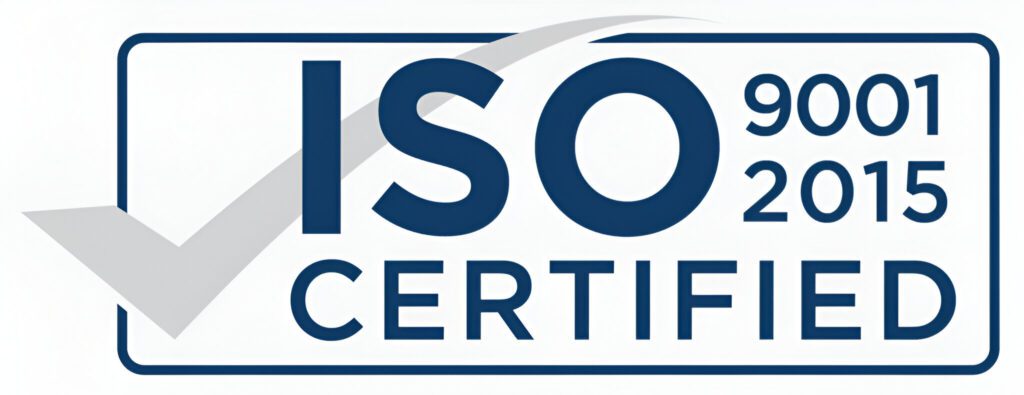In 2025, building an e-commerce website is easier than ever thanks to the numerous platforms available. These platforms are designed to help businesses of all sizes build and scale their online stores. In this article, we’ll explore the best e-commerce platforms builder, highlighting the pros and cons of each platform, along with examples to help you decide which one is best for your needs.
1. Shopify
Overview: Shopify is one of the leading e-commerce platforms worldwide. Known for its ease of use and scalability, it is ideal for entrepreneurs and businesses looking to sell products online quickly.

Why Choose Shopify?
- Shopify offers a robust and user-friendly interface.
- It is highly scalable, making it a great choice for businesses of all sizes.
- Integrates easily with various payment gateways, shipping options, and marketing tools.
Pros:
- Ease of Use: No coding skills are needed to set up your store.
- App Integrations: Access to a vast marketplace of apps for marketing, sales, and operations.
- 24/7 Support: Excellent customer support through chat, email, and phone.
- Mobile Optimization: Mobile-friendly designs for customers on the go.
Cons:
- Transaction Fees: Shopify charges fees for using payment gateways other than Shopify Payments.
- Limited Customization: Customization is limited unless you’re familiar with coding or willing to pay for apps and developer services.
- Pricing: The monthly cost can add up when adding apps and extra features.
Example:
- Allbirds uses Shopify to scale its direct-to-consumer business, showcasing its seamless design and user-friendly checkout process.
2. WooCommerce (WordPress)
Overview: WooCommerce is a plugin for WordPress, making it a popular choice for businesses that already have a WordPress site or want complete control over their e-commerce website.

Why Choose WooCommerce?
- WooCommerce is highly customizable, offering a wealth of plugins and themes.
- Best for those already using WordPress.
- It’s an open-source platform, meaning it’s free to use but can require some setup and additional costs for hosting.
Pros:
- Complete Control: Full access to source code allows for deep customization.
- Free: The WooCommerce plugin is free, though you may need to pay for hosting and premium extensions.
- Wide Range of Extensions: Easily integrates with numerous third-party services and tools.
- SEO Friendly: WooCommerce is built with SEO best practices in mind, especially if combined with popular WordPress plugins like Yoast.
Cons:
- Requires WordPress Knowledge: Requires a basic understanding of WordPress to make the most of it.
- Hosting Costs: You need to find your own hosting provider, which can increase costs.
- Maintenance: Regular updates and maintenance may be required.
Example:
- Blue Star Coffee uses WooCommerce to sell its coffee products, benefiting from its flexibility and extensive range of plugins.
3. BigCommerce
Overview: BigCommerce is a cloud-based e-commerce platform designed for growth. It caters to businesses with high-volume sales and those that need more advanced features.

Why Choose BigCommerce?
- Offers built-in tools for SEO, marketing, and shipping.
- Ideal for scaling businesses looking for growth potential.
- Integrates with major third-party platforms, including Amazon, eBay, and social media.
Pros:
- Scalability: Suitable for large and growing businesses.
- Built-in Features: Unlike Shopify, it offers a lot of features out-of-the-box without needing additional apps.
- Advanced SEO Tools: Excellent SEO functionality for businesses focused on organic traffic.
Cons:
- Learning Curve: The platform can be more complicated for beginners.
- Transaction Fees: Like Shopify, there are transaction fees when using external payment gateways.
- Limited Theme Customization: Themes are less customizable compared to platforms like WordPress.
Example:
- Ben & Jerry’s uses BigCommerce for its online store, benefiting from its advanced features like multi-channel selling.
4. Wix eCommerce
Overview: Wix is one of the easiest website builders, known for its drag-and-drop functionality. Wix eCommerce is an extension that allows businesses to build online stores with ease.

Why Choose Wix?
- Ideal for those looking for a simple, all-in-one solution.
- Great for small businesses or startups with limited budgets.
- Offers a high degree of design flexibility and pre-built templates.
Pros:
- Drag-and-Drop Builder: No coding required, making it easy for beginners.
- Affordable: Low cost, especially for small businesses and startups.
- Design Flexibility: A wide range of templates that can be fully customized.
- Hosting Included: Wix takes care of hosting, so you don’t need to worry about it.
Cons:
- Limited Scalability: Not as suitable for larger businesses with extensive product catalogs.
- SEO Limitations: While improving, Wix’s SEO tools are still not as powerful as other platforms like Shopify or WooCommerce.
- Transaction Fees: Charges a fee for its basic plans when using external payment gateways.
Example:
- Hebe Studio, a fashion store, uses Wix for its e-commerce site, taking advantage of its easy-to-use platform and design flexibility.
5. Squarespace
Overview: Squarespace is a website builder that combines stunning design with e-commerce functionality. It’s particularly favored by creative professionals and small businesses that prioritize aesthetics.

Why Choose Squarespace?
- Excellent for businesses with a focus on design and visual appeal.
- Simple to use with a great variety of beautiful templates.
- Ideal for smaller businesses that do not require extensive product management tools.
Pros:
- Design-Oriented: Beautiful templates and strong design features.
- All-in-One Platform: Hosting, design, and e-commerce features are all bundled together.
- No Transaction Fees: Unlike Shopify and BigCommerce, Squarespace doesn’t charge transaction fees on its plans.
- Good Customer Support: Responsive and helpful support options.
Cons:
- Limited Features for Large Stores: Not as feature-rich as Shopify or WooCommerce for managing large product catalogs.
- Less Flexible Customization: Customization options are more limited compared to platforms like WordPress.
- SEO Limitations: Not as SEO-friendly as platforms like WooCommerce.
Example:
- The Sill, a plant shop, uses Squarespace for its website, taking advantage of its beautiful templates and simple, all-in-one setup.
6. Magento (Adobe Commerce)
Overview: Magento, now known as Adobe Commerce, is a powerful and highly customizable platform designed for larger businesses and enterprise-level stores.

Why Choose Magento?
- Best for businesses with a large catalog and complex e-commerce needs.
- Offers unmatched customization and scalability.
- Great for companies with a dedicated development team or those looking for high levels of control.
Pros:
- Highly Customizable: Can be fully tailored to your business requirements.
- Scalability: Handles large catalogs and high traffic well.
- Robust Community: A large community of developers who contribute to plugins, extensions, and themes.
Cons:
- Technical Expertise Required: Needs a development team for setup and management.
- High Maintenance Costs: It can become expensive when factoring in hosting, development, and extensions.
- Complexity: The platform can be complex for non-technical users to navigate.
Example:
- Coca-Cola uses Magento to manage its global e-commerce presence, benefiting from its flexibility and enterprise-level features.
Conclusion:
Choosing the best platform for your e-commerce website in 2025 depends on your business size, goals, and resources. Shopify is perfect for entrepreneurs and growing businesses, while WooCommerce is ideal for those seeking full control and flexibility. BigCommerce and Magento are excellent for larger businesses needing advanced features and scalability, while Wix and Squarespace cater to those wanting an easy, design-focused solution.
Evaluate the needs of your business, the available budget, and the level of customization required when selecting a platform to ensure long-term success in the competitive e-commerce space.
Thinking of developing your e-commerce store?
If you’re ready to turn your dream into reality, our professional team is here to help. We specialize in developing high-quality, user-friendly e-commerce websites that are tailored to your specific needs. Contact us today to get started!


